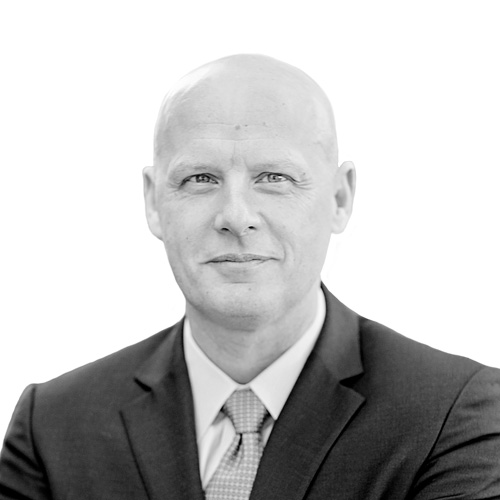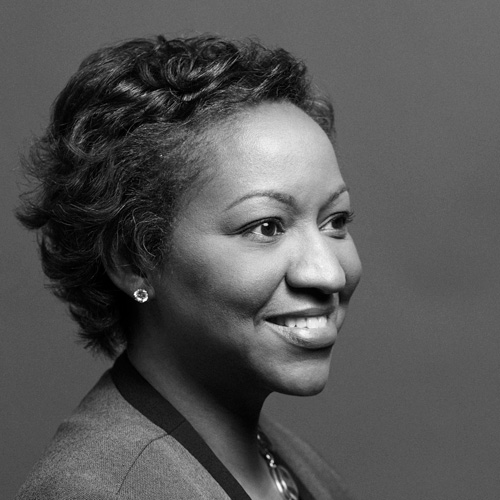Catherine Muldoon has always had a strong sense of right and wrong. “It’s a mind-set my parents encouraged in me: giving people a fair chance is both honorable and productive in its empowerment,” she says.
As chief legal officer of BDP International Inc., Muldoon has taken that deeply held belief in fairness and helped highlight how it embodies the company’s corporate culture. Founded in 1966 by Richard Bolte Sr., BDP is a privately held, family-owned global logistics provider based in Philadelphia that operates freight logistics centers in 270 cities across the world.
BDP is one of the most ethical companies in the world, according to the Ethisphere Institute, a global think tank on business ethics. Its World’s Most Ethical Companies program honors companies that excel in ethical business standards and practices. In 2016, Ethisphere named BDP one of its honorees in a field that spans twenty-one countries, five continents, and forty-five industries.
“A culture of integrity has always been at the heart of the company,” Muldoon says. In her fourteen years at BDP, she has expanded and codified BDP’s anticorruption efforts as the company has grown to cover larger global territory. Muldoon actually began her career in BDP’s executive training program right out of college from Johns Hopkins University. After two years, she left to earn her law degree from Seton Hall University. All the while, though, she maintained a relationship with BDP. After a decade acquiring litigation and business skills at private law firms, she approached Rich Bolte—the son of BDP’s founder, current CEO of the company, and someone whom she always admired for his leadership and values—about a job. “I identified BDP as a fantastic opportunity for me to take my skills back to the business world and the perfect platform for me to use fairness in business as a tool to support communities globally,” she recalls.
The Boltes saw the world the same way and allowed Muldoon to incorporate that worldview into her role as corporate counsel. She was fortunate to join the company just as it embarked on extensive worldwide growth through acquisitions of foreign companies. “What really impressed me about Rich and BDP was how appreciative they are of the different business cultures and communities and how they drive ethics and charity from the top,” she says. “As we acquired companies globally, BDP integrated its company values while respecting and valuing the local cultures of those companies. When I visit our operations in, say, Thailand or Chile, I am so proud to see BDP’s culture of integrity throughout this global network. Our mantra—one BDP—defines our culture perfectly.”
Integrity, sadly, is not a universal business practice. Outright corruption runs rampant in many parts of the world, and it exists more subtly in others. “It is very difficult to conduct business in a clean way in many jurisdictions,” Muldoon says. “You have to choose partners very wisely and be diligent not only at the onset but as you move your business relationship forward. We have turned down business in some countries because of this.”
BDP’s anticorruption program, which was Muldoon’s brainchild, began about twelve years ago. “We wanted to be sure we managed this growth in a way that protected us and that it was clear to all that our efforts were being driven straight from corporate headquarters throughout our entire global platform,” she says. She took best practices from around the world and wove them into BDP policy. “Our contracts include mutual protection, so there is little risk for either party to get into a situation that could give rise to a violation,” she says.
The result of the project has been, in her words, astounding. In fact, the company has never been in violation of ethics. “We have never even had an investigation by our government or any other government where we conduct business,” she says. “That is almost unheard of in our industry and can only be described as a competitive advantage. We are the trusted business partner of all of our clients.”
Muldoon also led the efforts to write and manage BDP’s code of conduct. She describes the code as a principled approach to ethics that speaks to good business practices. “Our expectation is high that our people make good business decisions,” she says. “It’s about knowing right from wrong. Would you be able to go on the news and feel good about what you did?”
All employees are trained in BDP’s expectations and sign off on the code. The company encourages, even requires, employees to report problems up the chain of command with no fear of reprisal. “Whistle-blowers are our heroes,” she says. “Any retaliation against that whistle-blower puts you at risk and is not tolerated at BDP.”
BDP is currently expanding its presence in Africa, and Muldoon is working to support human rights in Morocco and Egypt from her position at BDP and as a member of the UN advisory board for anticorruption.
It’s all part of what she calls the three buckets of BDP’s ethics program. The first bucket is a culture of integrity. This includes the code of conduct, corporate governance, compliance, and corporate values, and it starts with treating each other with respect. The next bucket is corporate social responsibility, a mission that BDP is trying to centralize with charitable initiatives all over the world. “We are reaching out to communities to ensure we are a good corporate citizen,” she says.
The third bucket is reputation and branding. “We have won awards for our ethical standards, but there are still people around the world who aren’t aware of that,” she says. “We will continue to communicate through our words and practices to let people know that we are a trusted business partner anywhere in the world.”

